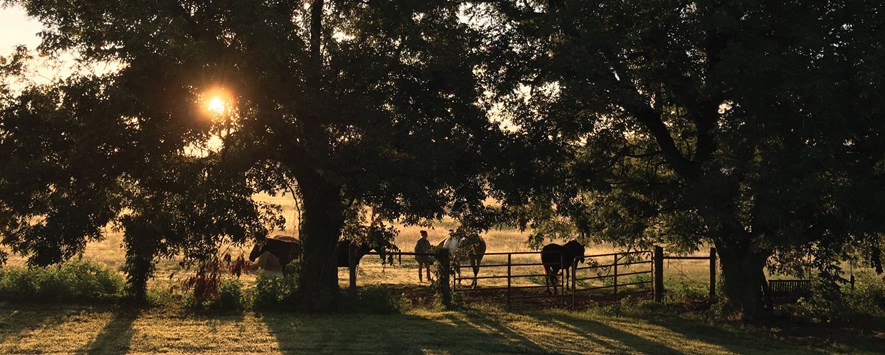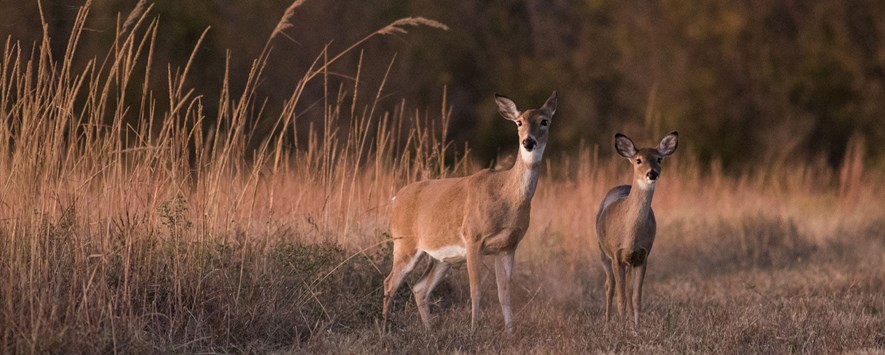Dave Wingo turns a hobby into an integral part of his farming and ranching operations.
Dave Wingo had 15 cows and big dreams in 1980.
The recent high school graduate had wanted to be a farmer like his grandfather since he was 6 years old. He plowed his first furrow at age 8, started moving irrigation pipe for peanut farmers at 13 and went into the hay business at 16.
 Dave Wingo drives stocker cattle to a new pasture on horseback.
Dave Wingo drives stocker cattle to a new pasture on horseback.
Now he just needed to figure out how to get more cows. His grandfather, however — one of his greatest supporters — was not so optimistic. Wingo still remembers his grandpa’s voice: “Son, I want to tell you something. I’ve done this my whole life, and it’s the hardest thing in the world there is to do.”
The elder man encouraged him to go back to school and get a “real job.” There was no money in farming, he said. But Wingo was not easily swayed.
“I told him, ‘I’m going to do it. I want to do it,’” Wingo recalls.
Wingo’s grandfather promised to help him as much as he could, but the young man continued working his day job while tending his cattle and looking for ways to grow.
That summer, drought hit.
 Winning Big
Winning Big
Dave Wingo always knew he wanted to go into ranching, but the economics of the 1980s didn’t help. Neither did drought. Wingo began to find his stride when he learned about rotational grazing and became more intentional about managing his forages, cattle and marketing. More recently, he has taken on the new challenge of raising Corriente cattle for team roping, one of his favorite pastimes.
Wingo had just opened a gate to one drying-up pasture to let his cows roam between it and another when a public service announcement came over his pickup’s radio. It was R.L. Dalrymple from Noble Research Institute telling people not to do what Wingo had just done.
 Dave and Brenda Wingo raise cattle on their ranch near Holdenville, Oklahoma.
Dave and Brenda Wingo raise cattle on their ranch near Holdenville, Oklahoma.
Knowing he needed help, Wingo scratched the man’s phone number into the mud on the hood of his truck and dashed to the house to call it. The resulting conversation started a relationship that taught him the value of rotational grazing — where cattle graze one section of a pasture before moving to the next so grass has a chance to recover and weeds don’t take over. The connection has grown to inform nearly every area of Wingo’s ranch, from grazing plans to cattle marketing strategies.
Dave is eager to listen and learn, but what makes him stand out is that he's a doer. He's done just about everything you can think of. ... He just doesn't seem to back down from any challenge.”
— James Locke
Senior Soils and Crops Consultant
Through the following four decades, Wingo followed the advice of Noble Research Institute consultants as he expanded his cow herd from 15 to about 600 mother cows and entered the stocker cattle business, tending as many as 1,400 at a time. He buys small, 350-pound calves and grows them to 750 pounds on wheat and crabgrass pasture before selling them. For the first time, Wingo had people working for him as opposed to him working for other people. Though he too continued working off the ranch.
“Dave is eager to listen and learn, but what makes him stand out is that he’s a doer,” says James Locke, senior soils and crops consultant, who has visited the Wingo ranch many times to offer fertilization recommendations. “He’s done just about everything you can think of. He’s adopted new technologies and practices. He’s been innovative. He just doesn’t seem to back down from any challenge.”
Wingo didn’t give up on his lifelong ambition when bovine respiratory viral diarrhea killed several of his cattle. Not even when a tornado blew away the roof of his home and scattered cattle for days.
But the timeless struggle is making enough money to keep the ranch going. It can be difficult, Wingo says, especially as costs of inputs, like fertilizer, constantly fluctuate as do the prices he receives for his cattle at market.
 Dave Wingo uses horses in both his hobby of team roping and as well as his work on the ranch.
Dave Wingo uses horses in both his hobby of team roping and as well as his work on the ranch.
In 2012, Wingo saw an opportunity to add a stream of revenue to the ranch through his hobby — team roping. He and a buddy were at a roping event when they realized the industry needed higher quality calves. Wingo thought he could fill the need and told his wife, Brenda, of his plan. She wasn’t sure, at first.
“I said, ‘We don’t know anything about that,’” Brenda recalls, adding with a laugh: “He didn’t care. He just jumped in there.”
They started with 100 Corriente heifers and a steep learning curve. The primary goal in growing stocker cattle is to put weight on them, but sport cattle are athletes. Wingo had to learn how to control a calf’s growth to a quarter pound each day.
 A Different Breed
A Different Breed
Dave Wingo raises and trains Corriente cattle used for team roping events. As a stocker producer, Wingo is used to putting weight on cattle for beef production. However, sport cattle are athletes that need special training and care. He incorporates them into his rotational grazing system and ensures they are ready for event day.
“We had a lot to learn in the beginning,” Wingo says, “but they’re the only cattle I ever had that paid for their own feed bill each week. They’ve also taken care of the cost for feeding hay to the cows.”
Corriente cattle have different grazing behaviors from those of the primarily English-based calves he has traditionally raised. The hardy breed will eat anything, whereas more common ones often choose certain grasses over others. The difference has helped Wingo incorporate the roping cattle into his rotational grazing system — which he has been optimizing since his first interaction with Noble.
The stockers get first choice of grasses in pastures, then the cows and the roping cattle clean up.
“I would have nothing if not for Noble Research Institute,” Wingo says. “Those guys gave me confidence to keep going regardless of the challenges. Ranching, farming or roping, you’ve got to have confidence in your plan or it won’t succeed.”




